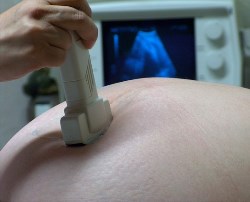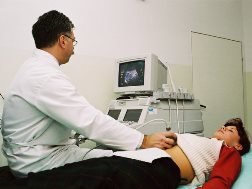How to Pick the Best Sonogram Tech School near Dixons Mills Alabama
 Now that you have decided to obtain an ultrasound technician degree near Dixons Mills AL, it’s time to start the process of selecting a school. First, you need to find the ideal program that will furnish the appropriate training to become a qualified professional. And since some states do mandate that ultrasound techs be either licensed or certified, depending on your residence you may also need to be prepared to pass a certification or licensing exam. So it’s very important that you research each school in order to evaluate and compare your options. But exactly where does one begin? A number of potential students will start by looking for colleges that are within commuting distance of their residences and then by comparing tuition. Certainly cost and location must be taken into account when making a decision, but there are additional important factors also. For instance, if the ultrasound technician schools have earned accreditation or if they provide internship programs. These and additional qualifiers will be discussed more in depth later in this post. But first, let’s discuss what a sonogram tech does and the credentials and online education programs that are available.
Now that you have decided to obtain an ultrasound technician degree near Dixons Mills AL, it’s time to start the process of selecting a school. First, you need to find the ideal program that will furnish the appropriate training to become a qualified professional. And since some states do mandate that ultrasound techs be either licensed or certified, depending on your residence you may also need to be prepared to pass a certification or licensing exam. So it’s very important that you research each school in order to evaluate and compare your options. But exactly where does one begin? A number of potential students will start by looking for colleges that are within commuting distance of their residences and then by comparing tuition. Certainly cost and location must be taken into account when making a decision, but there are additional important factors also. For instance, if the ultrasound technician schools have earned accreditation or if they provide internship programs. These and additional qualifiers will be discussed more in depth later in this post. But first, let’s discuss what a sonogram tech does and the credentials and online education programs that are available.
Click Here to Get Free Information on Ultrasound Technician Schools!
Ultrasound Technician Work Summary
 There are various professional titles for ultrasound techs (technicians). They are also called ultrasound technologists, sonogram techs, and diagnostic medical sonographers (or just sonographers). Regardless of name, they all have the same primary job function, which is to implement diagnostic ultrasound techniques on patients. While many work as generalists there are specialties within the profession, for instance in cardiology and pediatrics. The majority work in Dixons Mills AL clinics, hospitals, outpatient diagnostic imaging centers and even private practices. Typical daily job tasks of an ultrasound technician may consist of:
There are various professional titles for ultrasound techs (technicians). They are also called ultrasound technologists, sonogram techs, and diagnostic medical sonographers (or just sonographers). Regardless of name, they all have the same primary job function, which is to implement diagnostic ultrasound techniques on patients. While many work as generalists there are specialties within the profession, for instance in cardiology and pediatrics. The majority work in Dixons Mills AL clinics, hospitals, outpatient diagnostic imaging centers and even private practices. Typical daily job tasks of an ultrasound technician may consist of:
- Preserving records of patient medical histories and details of each procedure
- Counseling patients by explaining the procedures and answering questions
- Readying the ultrasound machines for use and then cleaning and re-calibrating them
- Transferring patients to treatment rooms and ensuring their comfort
- Utilizing equipment while limiting patient exposure to sound waves
- Reviewing the results and determining need for additional testing
Sonographers must frequently gauge the safety and performance of their machines. They also must adhere to a high professional standard and code of conduct as health practitioners. So as to maintain that degree of professionalism and remain up to date with medical knowledge, they are mandated to complete continuing education courses on a regular basis.
Sonogram Technician Degree Programs Offered
 Ultrasound technician students have the opportunity to acquire either an Associate Degree or a Bachelor’s Degree. An Associate Degree will typically involve around 18 months to 2 years to accomplish depending on the course load and program. A Bachelor’s Degree will require more time at up to four years to finalize. Another alternative for individuals who have already obtained a college degree is a post graduate certificate program. If you have obtained a Bachelor’s Degree in any major or an Associate Degree in a related health sector, you can instead choose a certificate program that will take just 12 to 18 months to finish. One thing to consider is that most ultrasound technician colleges do have a clinical training element as part of their curriculum. It often may be fulfilled by taking part in an internship program which many schools sponsor through Dixons Mills AL clinics and hospitals. Once you have graduated from one of the certificate or degree programs, you will then need to comply with the licensing or certification requirements in Alabama or whichever state you choose to practice in.
Ultrasound technician students have the opportunity to acquire either an Associate Degree or a Bachelor’s Degree. An Associate Degree will typically involve around 18 months to 2 years to accomplish depending on the course load and program. A Bachelor’s Degree will require more time at up to four years to finalize. Another alternative for individuals who have already obtained a college degree is a post graduate certificate program. If you have obtained a Bachelor’s Degree in any major or an Associate Degree in a related health sector, you can instead choose a certificate program that will take just 12 to 18 months to finish. One thing to consider is that most ultrasound technician colleges do have a clinical training element as part of their curriculum. It often may be fulfilled by taking part in an internship program which many schools sponsor through Dixons Mills AL clinics and hospitals. Once you have graduated from one of the certificate or degree programs, you will then need to comply with the licensing or certification requirements in Alabama or whichever state you choose to practice in.
Online Sonogram Tech Colleges
 As previously mentioned, almost all ultrasound technician schools have a clinical requirement to their programs. So while you can earn a certificate or degree online, a significant portion of the training will be either conducted in an on-campus laboratory or at an approved off-campus facility. Clinical training can typically be fulfilled through an internship at a local Dixons Mills AL hospital, outpatient clinic or private practice. However the rest of the training and classes can be accessed online in your Dixons Mills home. This is especially beneficial for those students that keep working while earning their degrees. In addition online programs are often more affordable than on campus alternatives. Costs for study materials and commuting can be lessened as well. But similarly as with any ultrasound tech program you are considering, confirm that the online program you choose is accredited. One of the most highly regarded accrediting agencies is the Commission on Accreditation of Allied Health Education Programs (CAAHEP). Accreditation is particularly important for certification, licensing and job placement (more on accreditation later). So if you are dedicated enough to learn outside of the classroom in the convenience of your own home, then an online degree may be the ideal option for you.
As previously mentioned, almost all ultrasound technician schools have a clinical requirement to their programs. So while you can earn a certificate or degree online, a significant portion of the training will be either conducted in an on-campus laboratory or at an approved off-campus facility. Clinical training can typically be fulfilled through an internship at a local Dixons Mills AL hospital, outpatient clinic or private practice. However the rest of the training and classes can be accessed online in your Dixons Mills home. This is especially beneficial for those students that keep working while earning their degrees. In addition online programs are often more affordable than on campus alternatives. Costs for study materials and commuting can be lessened as well. But similarly as with any ultrasound tech program you are considering, confirm that the online program you choose is accredited. One of the most highly regarded accrediting agencies is the Commission on Accreditation of Allied Health Education Programs (CAAHEP). Accreditation is particularly important for certification, licensing and job placement (more on accreditation later). So if you are dedicated enough to learn outside of the classroom in the convenience of your own home, then an online degree may be the ideal option for you.
Questions to Ask Sonogram Tech Programs
 When you have decided on which certificate or degree that you would like to earn, you can initiate the procedure of assessing and comparing sonogram tech colleges. You may first want to choose whether you will attend classes online or travel to a college campus in the Dixons Mills AL area. Certainly location will be significant if you select the latter, and the cost of tuition undoubtedly will be an initial qualifier also. But there are additional variables that you must also take into account, for instance if the schools are accredited and if they provide internship programs. Therefore in order to perform your due diligence so that you can make your final selection, below are several questions that you need ask each sonography program prior to making a decision.
When you have decided on which certificate or degree that you would like to earn, you can initiate the procedure of assessing and comparing sonogram tech colleges. You may first want to choose whether you will attend classes online or travel to a college campus in the Dixons Mills AL area. Certainly location will be significant if you select the latter, and the cost of tuition undoubtedly will be an initial qualifier also. But there are additional variables that you must also take into account, for instance if the schools are accredited and if they provide internship programs. Therefore in order to perform your due diligence so that you can make your final selection, below are several questions that you need ask each sonography program prior to making a decision.
Are the Sonogram Technician Programs Accredited? Most ultrasound tech colleges have acquired some form of accreditation, whether regional or national. However, it’s still imperative to verify that the school and program are accredited. Among the most highly respected accrediting organizations in the field of sonography is the Joint Review Committee on Education in Diagnostic Medical Sonography (JRC-DMS). Programs receiving accreditation from the JRC-DMS have gone through a detailed evaluation of their teachers and course materials. If the program is online it might also obtain accreditation from the Distance Education and Training Council, which focuses on distance or online education. All accrediting organizations should be acknowledged by the U.S. Department of Education or the Council on Higher Education Accreditation. In addition to guaranteeing a superior education, accreditation will also assist in obtaining financial assistance and student loans, which are frequently not accessible for non-accredited schools. Accreditation can also be a pre-requisite for certification and licensing as required. And numerous Dixons Mills AL health facilities will only hire graduates of an accredited college for entry level positions.
Are Internship Programs Offered? Ask if the ultrasound technician programs you are assessing have partnerships with Dixons Mills AL hospitals or clinics for internship programs. Not only are internships a great way to obtain hands on experience in a clinical setting, they are also a way to fulfill the clinical training requirement for the majority of programs. As a secondary benefit, they can help students and graduates develop professional relationships in the Dixons Mills healthcare community and help with obtaining employment.
Is Job Placement Assistance offered? You will most likely wish to secure employment quickly after graduating, but finding that first job in a new profession can be challenging without support. Find out if the sonographer programs you are interviewing have job assistance programs and what their placement rates are. High and rapid placement rates are a good indication that the schools have substantial networks and great relationships with Alabama healthcare employers. It also confirms that their graduates are highly regarded and sought after.
Where is the Program Located? For many students, the college they pick will need to be within travelling distance of their Dixons Mills AL residence. Individuals who have chosen to attend classes online obviously will not have to concern themselves with the location of the campus. However, the availability of local internships will be of importance. One thing to consider is that if you choose to enroll in a program that is out of state or perhaps out of your local area, you might need to pay a higher tuition. State colleges commonly charge higher tuitions for out of state residents. And community colleges often charge a higher tuition for those students that don’t reside within their districts.
What Size are the Classes ? Unless you are the type of student that prefers to sit far in the rear of class or hide in the crowd, you will undoubtedly prefer a smaller class size. Smaller classes allow for more individual participation and one-on-one instruction. Ask the schools you are researching what the average student to teacher ratio is for their classrooms. If practical you may prefer to monitor one or more classes before making your final determination. This will also give you an opportunity to talk with several of the instructors and students to get their opinions regarding the sonogram tech program also.
Does the School Accommodate your Schedule? And finally you must confirm that the sonographer program you finally select can provide the class schedule you need. This is particularly crucial if you decide to continue working while attending classes. If you need to schedule evening or weekend classes in the Dixons Mills AL area, confirm that they are available. If you can only enroll on a part-time basis, verify if that is an option and how many courses or credit hours you would need to enroll in. Also, ask what the protocol is for making up any classes that you might miss because of illness, work or family emergencies.
Ultrasound Education Dixons Mills Alabama
 Selecting the ideal sonographer certificate or degree program is a crucial first step to entering a fulfilling new career providing diagnostic services to patients. Sonographer programs require that you have a high school diploma or a GED. In addition to meeting academic standards, you need to be in at least fairly good physical condition, able to stand for extended durations and able to routinely lift weights of fifty pounds or more, as is it often necessary to adjust patients and move heavy machines. Additional preferred skills include technical proficiency, the ability to stay calm when confronted by an angry or anxious patient and the ability to communicate in a clear and compassionate manner. You originally came to this website due to an interest in Ultrasound Education and wanting more information on Vocational School For Ultrasound Tech. However, as we have discussed in this article, there are multiple questions that you need to ask each school you are looking at. This holds true whether you choose an online program or drive to the school campus to attend classes. And by asking the right questions so that you can compare each school, you will be able to narrow down your alternatives until you are left with the ideal school for your education. And with the right training, discipline and motivation to succeed, you can achieve your goal to practice as an sonographer in Dixons Mills AL.
Selecting the ideal sonographer certificate or degree program is a crucial first step to entering a fulfilling new career providing diagnostic services to patients. Sonographer programs require that you have a high school diploma or a GED. In addition to meeting academic standards, you need to be in at least fairly good physical condition, able to stand for extended durations and able to routinely lift weights of fifty pounds or more, as is it often necessary to adjust patients and move heavy machines. Additional preferred skills include technical proficiency, the ability to stay calm when confronted by an angry or anxious patient and the ability to communicate in a clear and compassionate manner. You originally came to this website due to an interest in Ultrasound Education and wanting more information on Vocational School For Ultrasound Tech. However, as we have discussed in this article, there are multiple questions that you need to ask each school you are looking at. This holds true whether you choose an online program or drive to the school campus to attend classes. And by asking the right questions so that you can compare each school, you will be able to narrow down your alternatives until you are left with the ideal school for your education. And with the right training, discipline and motivation to succeed, you can achieve your goal to practice as an sonographer in Dixons Mills AL.
More Ultrasound Locations in Alabama
Mason–Dixon line
The Mason–Dixon line, also called the Mason and Dixon line or Mason's and Dixon's line, was surveyed between 1763 and 1767 by Charles Mason and Jeremiah Dixon in the resolution of a border dispute involving Maryland, Pennsylvania, and Delaware in Colonial America. It is still a demarcation line among four U.S. states, forming part of the borders of Pennsylvania, Maryland, Delaware, and West Virginia (originally part of Virginia before 1863). Later it became known as the border between the Northern United States and the Southern United States. Before the Missouri Compromise, the line (west of Delaware) marked the northern limit of slavery in the United States.
Maryland's charter of 1632 granted the Calverts land north of the entire length of the Potomac River up to the 40th parallel. A problem arose when Charles II granted a charter for Pennsylvania in 1681. The grant defined Pennsylvania's southern border as identical to Maryland's northern border, but described it differently, as Charles relied on an inaccurate map. The terms of the grant clearly indicate that Charles II and William Penn believed the 40th parallel would intersect the Twelve-Mile Circle around New Castle, Delaware, when in fact it falls north of the original boundaries of the City of Philadelphia, the site of which Penn had already selected for his colony's capital city. Negotiations ensued after the problem was discovered in 1681. A compromise proposed by Charles II in 1682, which might have resolved the issue, was undermined by Penn receiving the additional grant of the "Three Lower Counties" along Delaware Bay, which later became the Delaware Colony, a satellite of Pennsylvania. Maryland considered these lands part of its original grant.[1]
The conflict became more of an issue when settlement extended into the interior of the colonies. In 1732 the proprietary governor of Maryland, Charles Calvert, 5th Baron Baltimore, signed a provisional agreement with William Penn's sons, which drew a line somewhere in between and renounced the Calvert claim to Delaware. But later, Lord Baltimore claimed that the document he had signed did not contain the terms he had agreed to, and refused to put the agreement into effect. Beginning in the mid-1730s, violence erupted between settlers claiming various loyalties to Maryland and Pennsylvania. The border conflict would be known as Cresap's War.
